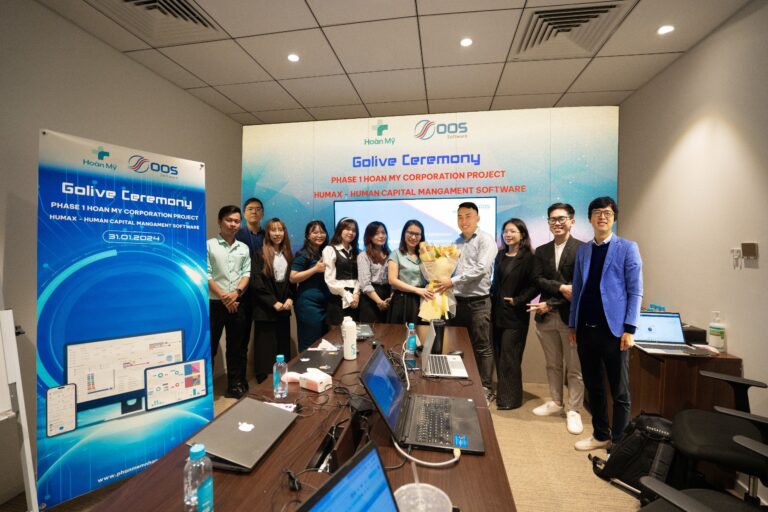Corporate culture is one of the important factors that help an organization develop sustainably and successfully. Corporate culture is not simply rules and standards but it must be consistent with the goals and core values of the organization.
In this article, we will learn about the competitive advantages that corporate culture brings, why corporate culture is a competitive advantage that is difficult to copy, and how to intentionally install corporate culture to bring really effective.
What competitive advantage does corporate culture create?

Corporate culture is considered an important factor not only for the survival and development of an organization, but also for helping it compete in today's business market. With that difference, it is not surprising that some organizations with good corporate cultures often have greater competitive advantages in the market compared to other organizations.
The importance of corporate culture in creating competitive advantage for organizations:
The impact of corporate culture on labor productivity
According to research from Duke University's Fuqua School of Business, more than 50% executives said corporate culture “affects a company's productivity, creativity, profitability, and growth.” When an organization has a good corporate culture, employees feel motivated and motivated to work. Employees feel confident and creative in coming up with new ideas and finding ways to improve existing processes and products. This helps increase labor productivity and helps organizations save time and costs.
The impact of corporate culture on customers
Corporate culture can also impact customers. When an organization has a good corporate culture, customers will feel satisfied with the organization's working environment and feel well treated. This helps create customer trust and loyalty to the organization. Customers feel satisfied with the organization's products and services and tend to return and continue making purchases. And even tell others about the organization's products and services.
According to Forbes research, companies with strong cultures have seen a fourfold increase in revenue growth. Furthermore, companies that appeared on Fortune's annual 100 Best Companies to Work For list also had higher average annual profits, with cumulative profits as high as 4,95%.
The importance of corporate culture in building employee loyalty to the organization
Corporate culture also plays an important role in building employee loyalty to the organization. When an organization has a good corporate culture, employees will feel satisfied with the working environment and motivated to work better. They feel confident and appreciated, and this helps them feel satisfied and want to stay with the organization for a long time. This also helps reduce turnover rates and increases employee engagement and loyalty to the organization.
Research conducted by OC Tanner found that 79% of those who left their jobs cited “not being appreciated” as the main reason for their decision. The majority of those surveyed (60%) said they were “more motivated by recognition than money.”
Employees with good abilities will stay with the business for a long time when they feel appreciated. A healthy culture connects everyone in the organization and brings recognition to employees' contributions.
See more: Deloitte Report on Employee Engagement and Culture
The impact of corporate culture on innovation and creativity
Good corporate culture can also impact organizational innovation and creativity. When an organization has a good corporate culture, employees are encouraged to come up with new ideas and find ways to improve existing processes and products. This helps generate new ideas and innovative solutions, helping the organization improve and develop its products and services.
Why can't corporate culture be done in a "copy-paste" way?

A good corporate culture is an indispensable factor to help an organization have a competitive advantage in the market. However, many organizations tend to copy the corporate culture of their competitors, hoping to get similar results. However, unlike many things that can be copied such as strategies, products, processes, and technological know-how..., corporate culture is a difficult factor to copy. And not everyone clearly understands that copying corporate culture does not really bring the expected results.
A typical example of the copy paste culture that leads to catastrophic failure is Fast Delivery. In the years 2014 - 2015, because he admired Mobile World's culture so much, Luong Duy Hoai - CEO of Fast Delivery asked Mekong Capital to organize an inspiration session about the culture of 'elders' for about 40 people. Senior and middle managers of Fast Delivery. After that class, everyone was very connected and set great goals.
At the same time, the company welcomed a few C-level personnel, real experts in several fields. Next, it is not difficult to guess that when the new people start to collide with the old people, the new people's culture conflicts with the old people's culture. Great goals are also impossible to achieve.
Some reasons that help Corporate Culture become a competitive advantage that is difficult to copy:
Corporate culture is a unique characteristic of each organization
Every organization has its own corporate culture, built on the values, vision and goals of the organization. This makes corporate culture a unique characteristic of each organization and cannot be simply copied. Each organization needs to build a corporate culture that suits itself, cannot copy from competitors and hope to get the same results.
See more: An excellent employee experience is key to installing a successful corporate culture
Differences between corporate cultures of organizations
The corporate culture of each organization is different because it reflects the values, vision and goals of that organization. Each organization has different needs, requirements and characteristics, so corporate culture needs to be consistent with those factors. If an organization copies a competitor's corporate culture, it not only fails to meet the organization's own requirements but also causes risks and unwanted consequences.
Corporate culture needs to be built based on the reality and experience of each organization
To build a good corporate culture, organizations need to identify and build on their own values, vision and goals. This requires an understanding of the organization's current processes, operating models and culture. Organizations need to conduct surveys and assessments to determine the strengths and weaknesses of their current corporate culture. Then, based on those results, the organization can propose solutions to improve and build a new corporate culture suitable for the organization.
See more articles at:
Steps to install an intentional corporate culture

Installing an intentional corporate culture brings many benefits to the organization.
First, an intentional corporate culture gives an organization a clear set of values and vision, which helps create alignment throughout the organization.
Second, intentional corporate culture helps build employee loyalty to the organization. When employees feel proud of the organization's values and vision, they will have better motivation and morale, which will also help reduce the turnover rate in the organization.
Ultimately, installing an intentional corporate culture helps create a positive work environment that fosters creativity and innovation within the organization, helping it grow and compete in the marketplace.
So how to install an intentional corporate culture? Here are the specific steps:
Step 1: Establish a foundation value system – PMVC
PVMC's foundation value system includes 4 elements: Philosophy; Mission – Mission; Vision – Vision; Core Values – Core values):
- Philosophy: determines the basic principles and ideas that the business wishes to apply and implement in all of its activities. Business philosophies will become constant in all business situations.
- Mission: defines the main goal of the business, clearly and specifically describes the products, services and values that the business wishes to provide to customers.
- Vision: describes the long-term goals of the business, creating a detailed image of the future the business wants to achieve.
- Core values: defines the core values that the business respects and wishes to promote in all its activities.
Step 2: Determine the scope of deployment
Based on the purpose and actual situation of the company in each stage, choose a core value you want to implement. From there, set goals and objectives for the corporate culture implementation plan.
Step 3: Make a deployment plan
From the core values you want to deploy, develop into a set of representative behaviors. The result of this process is a specific set of behaviors – the manifestation of representative behaviors. To be able to successfully install a purposeful corporate culture, it must come from leadership. Leaders need to be culturally transformed first and change their behavior. From there, new leaders can inspire their employees.
Step 4: Evaluate and improve
Review and evaluate corporate culture implementation activities, identify strengths and weaknesses, and then make adjustments and improvements to ensure the effectiveness of the implementation plan.
Continuously improve, modify and update corporate culture over time to ensure it is consistent with changes in the market and within the business. These improvements need to be periodic to ensure corporate culture is always consistent with the goals and values of the business.
Conclude
Corporate culture is an important factor in creating competitive advantage for an organization. However, it is not possible to simply copy a competitor's corporate culture.
Each organization has a unique corporate culture, reflecting the values, vision and goals of that organization. Installing an intentional corporate culture, based on organizational reality and experience, brings many benefits to the organization, including identification, employee loyalty, and a positive work environment. . Therefore, organizations need to determine and build a suitable corporate culture for themselves, not "copy - paste" from competitors.























